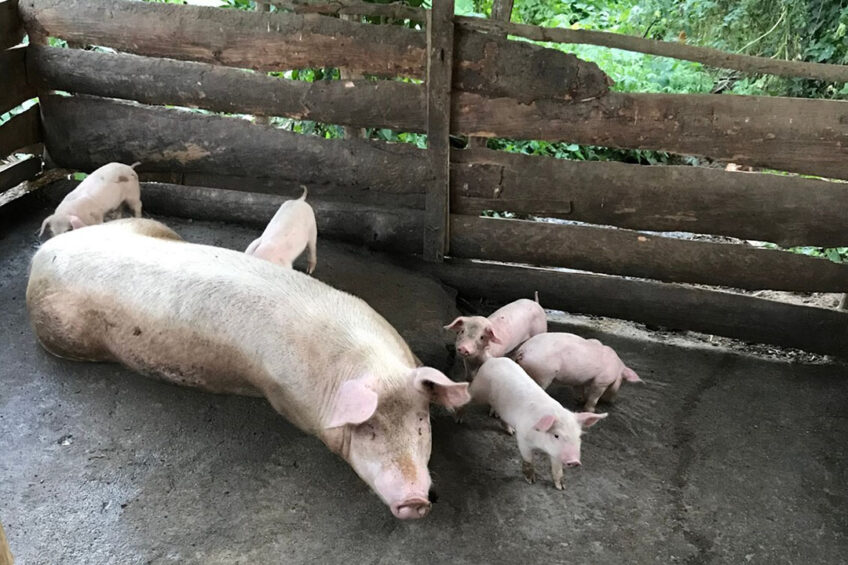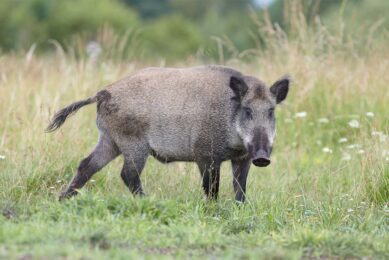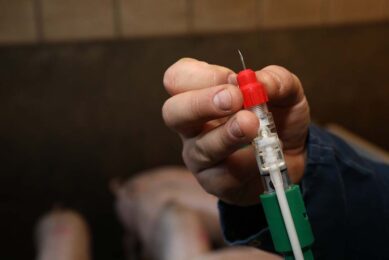ASF Dominican Republic: Army deployed to fight virus

The Dominican Republic is restricting pig shipments and mobilising the military to contain the spread of African Swine Fever, the agriculture ministry said Thursday, as the United States and Mexico tightened border checks to avoid infections.
The Dominican Republic will prohibit live and slaughtered pig movement in Sánchez Ramírez and Monte Cristi, according to the ministry’s statement, about which press agency Reuters reported. There will be “total military control in all strategic points of both provinces,” and the ministry will help disinfect affected areas, it said.
The virus was found in 2 farms, one in Monte Cristi province on July 1 and one in Sánchez Ramírez province on July 14. The ministry stated that Sánchez Ramírez province has 15,000 pigs and Monte Christi province has 4,600 pigs. According to Dominican Republic data there are 1.8 million pigs nationwide. All details about the outbreaks can be read here.
Killing all pigs in affected areas
“There is no type of vaccine for this terrible illness,” said Rafael Abel, president of the agricultural commission of the chamber of deputies, as he proposed killing all the pigs in the affected areas. This would represent losses of around US$ 180 million, he said.
The virus was discovered when the USA tested 389 samples from Dominican hogs raised on farms and in backyards. The results indicated that the virus is in “a small population of backyard pigs from Sánchez Ramírez and Montecristi provinces.”
The Dominican Republic was confronted with ASF about 40 years ago. In 1978 the country culled all its swine population, with help from the US, to end its last outbreaks.
OIRSA: Adopt preventive measures now
The Middle American International Regional Organization for Agricultural Health (OIRSA) alerted Central America and Mexico to adopt preventive measures.
In a statement, the organisation said, “OIRSA will support containment, control and eradication of the outbreak of African Swine Fever in the Dominican Republic.” OIRSA is based in El Salvador and also made up of Mexico, Belize, Guatemala, Honduras, Nicaragua, Costa Rica, Panama and the Dominican Republic.
Given the rapid spread of ASF it was said to be necessary that the authorities of other countries in the region “strengthen their animal health measures” in ports, airports and borders for the importation of animals, products and by-products from countries that have the disease, said Efraín Median, OIRSA director.
Panama: Extra attention for border control
A good example of heightened attention is Panama, one of the countries on the mainland that is relatively close to the Dominican Republic. In the newspaper La Estrella de Panamá, the minister of agricultural development Augusto Valderrama said, “ASF has been confined to Asia and part of Europe, and now it appears in the Dominican Republic, which entails a delicate situation due to the large number of flights from this country to Panama and the large population of emigrants, which forces us as an entity responsible for relaunching a rapid alert.”
Panama’s director of animal health within the ministry, Concepción Santos Sanjur, pointed to the importance of reinforced border surveillance. Border crossings such as Paso Canoas (with Costa Rica) and Darién (with Colombia) will be on the ministry’s radar and so will be ports, airports (checking both flights from the Dominican Republic and those that made a stopover there). On top, there will be more attention for ships in the Panama canal, and surveillance where there is a lot of tourist movement.
 Beheer
Beheer








 WP Admin
WP Admin  Bewerk bericht
Bewerk bericht